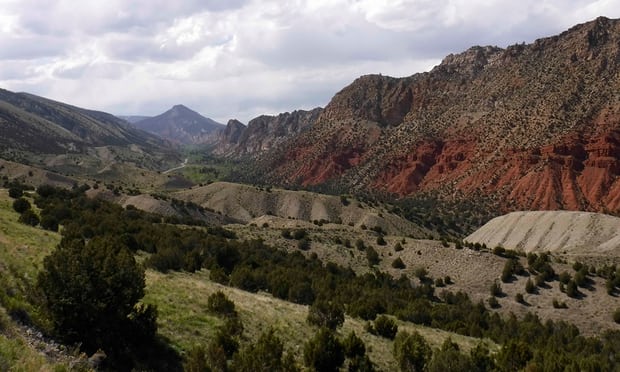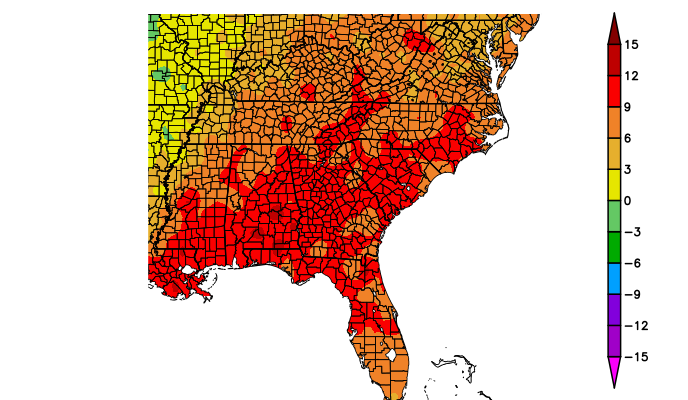-

If you want to understand future climate, it’s important to understand what happened in the past. The Guardian posted an article this week about some new research on the causes of the end of the Permian geologic period 252 million years ago. During this great extinction, 70 percent of land vertibrate species and 90 percent…
-

Every month NOAA publishes a monthly climate summary which contains information about the ranking of temperature and precipitation by state, climate division, and region as well as statistics on how warm or cold, wet or dry each region is. But there is a wealth of additional information you might not know about. Deke Arndt of…
-

The latest monthly climate summary for the Southeast is now available from the Southeast Regional Climate Center. It was the warmest February for the Southeast since records began in 1895. You can view the report at https://sercc.com/climateinfo_files/monthly/southeast_monthly_report/southeast201802.pdf.
Posted in: Climate summaries -

The National Hurricane Center has released their final report on Hurricane Irma. It’s 111 pages long, which attests to the impact that Irma had on the United States and especially the Southeast. You can read it at https://www.nhc.noaa.gov/data/tcr/AL112017_Irma.pdf.
Posted in: Tropical weather -

I saw this well-written discussion of the science of cloud seeding this morning and thought you might be interested. Cloud seeding is the injection of specific chemicals into clouds to help them form precipitation. It is often discussed as a way of helping farmers get more rainfall, especially in times of drought. But if you…
Posted in: Climate science -

An early look at the climate statistics so far this month show that while most of the Southeast has been cooler than normal so far this month, the precipitation amounts are all over the place, with some areas receiving 300% of normal so far while many other areas have received almost none. This has contributed…
Posted in: Climate summaries -

One of the reasons that you can’t just use historical trends in data over time to predict future climate is that there are often feedback loops that amplify the changes in temperature that may occur in the future. One of these feedback loops is the change in albedo (reflectance of sunlight) due to melting of…